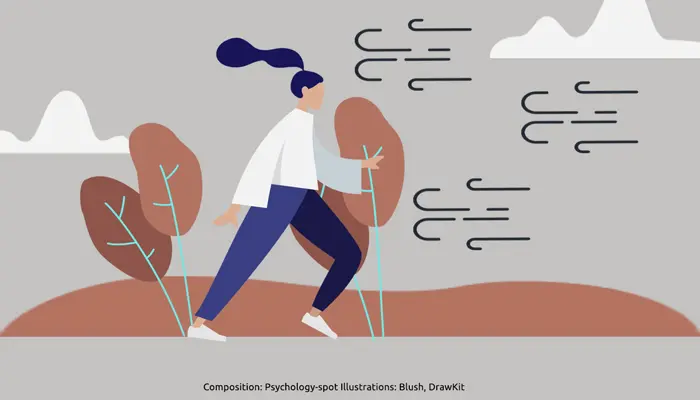
Strength has always been considered a virtue. Being strong in life is associated with tenacity, resilience, and emotional balance. Without a doubt, we all want to be strong. In fact, life itself teaches us to be strong and it is a skill that we must develop. However, sometimes we get so caught up in the role of the “strong” that we end up pushing ourselves beyond our limits. Sometimes being strong breaks us. For this reason, we have to learn to be strong in life, but we also have to learn to stop, take a breath, or simply rest.
There is a time to resist and another to let go
In 2020, the gymnast Simone Biles, who has been a five-time world champion, surprised everyone after withdrawing from the competition at the Tokyo Olympics. Although she was qualified for the final four, she said that she was not as confident in herself anymore and that she “didn’t want to go out there and do something stupid and get hurt.” She also stated that she had to prioritize her mental health. “We have to protect our mind and body and not just do what the world wants us to do,” she said.
Jacinda Ardern, the Prime Minister of New Zealand, also resigned yesterday. In an unusual decision in the political sphere, she acknowledged: “I am resigning because such a privileged role entails responsibility. The responsibility of knowing when you are the right person to lead and when you are not. I know what this job entails. And I know I don’t have enough energy to follow through doing it justice. That’s all!”
Her examples are still a rare bird in the world of public figures and there is no shortage of those who criticize them for taking a step back, but the truth is that sometimes it takes more courage to let go than to hold on. Sometimes we not only have to learn to be strong, but also to show our vulnerability. Because true wisdom and balance consist in knowing that there is a moment to resist and another to abandon.
The weight of being emotionally strong
Being strong in life can become a label with which we identify ourselves, a title that has been conferred on us, or even a “mask” that we wear through which we relate to others and to ourselves. When we have learned to be emotionally strong, the idea of giving up or fail does not cross our minds, so we can demand too much of ourselves, until we exhaust our strength and energy, both physically and psychologically.
Being strong in life often means feigning a fortitude that we no longer have or not being able to express pain as we would like. Many times it also involves protecting others, even from our own fears and insecurities.
In fact, generally the most emotionally strong people become the pillar of their families, work tea mor group of friends. Others recognize your resilience and assign you that role, often without prior agreement or explicit consent.
It is common that when persons are stronger and more resilient, they are more willing to solve problematic situations and are more effective in dealing with setbacks. Given this, others begin to delegate the management of their crises. They assume, as if it were something natural, that it is valid to place the weight of their own problems and difficulties on them.
As a result, the emotionally strongest people end up carrying a very heavy load on their shoulders, since the troubles of others are added to their problems and insecurities.
Of course, there is nothing wrong with that strength making us the pillar of others, as long as we can assume that role. Some people have a greater ability to overcome difficulties and face adversity, which puts them in an advantageous position with respect to others.
However, even strong people get tired. Sometimes they may not be in a position to play that role, but despite this, the others expect them to continue to do so, even at the cost of their mental or physical health. At that point, the strength becomes problematic.
The situation becomes even more complex when the bearer of problems – small and large – ends up being required to assume his role, making him feel guilty if he resists or refuses to do so. Meanwhile, the others end up assuming a very comfortable, almost childish position, giving up part of their autonomy and responsibility.
If that person doesn’t have enough strength to disassociate himself from his role and say “so far”, it is likely that he will end up broke.
Breaking the schemes
In relationships with a person who is emotionally stronger, there are often elements of manipulation. That “strong” can end up becoming an instrument for the majority – often unconsciously. Thus a vicious circle is generated. The dynamics only change when the person can’t take it anymore and suffers some damage that invalidates in the eyes of the others to continue assuming that role.
However, to avoid reaching that breaking point, we have to know how to stop before. We have to be aware that everyone, even the most emotionally strong, has the right to rest, to feel fear, of not knowing what to do, to express their emotions, to be impulsive, or to fall apart, to breathe and rest. Because, after all, each one must be responsible for his happiness. And if we are too strong, that role will end up undermining us, inside and out.



